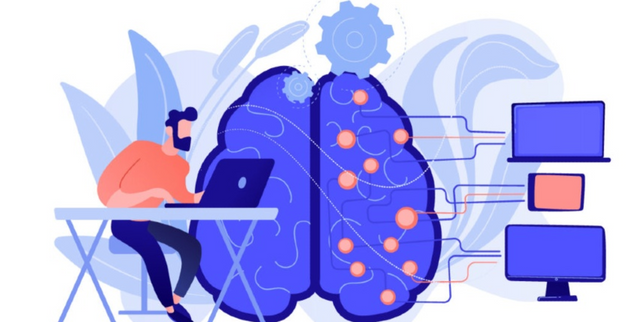How Can AI Agent Development Enhance Interactive Gaming Experiences?

In the rapidly evolving world of interactive gaming, artificial intelligence (AI) is playing an increasingly pivotal role. AI agent development has emerged as a transformative force, revolutionizing how games are designed, played, and experienced. This blog delves into the multifaceted ways in which AI agents enhance interactive gaming experiences, from creating more dynamic and responsive environments to personalizing gameplay and fostering deeper player engagement.
1. Creating Dynamic and Responsive Game Worlds
One of the most significant impacts of AI agent development in gaming is the creation of dynamic and responsive game worlds. Traditional games often feature static environments and predictable behaviors, which can lead to a sense of repetitiveness. AI agents, however, introduce a new level of interactivity and realism.
Procedural Generation: AI agents can leverage procedural generation techniques to create vast and varied game worlds. By using
algorithms to generate content on the fly, developers can create
expansive environments that evolve over time. This not only enhances
replayability but also ensures that each player's experience is
unique.Adaptive Environments: AI agents can dynamically adjust game environments based on player actions. For example, in an open-world
game, AI-driven weather systems and environmental changes can react
to player choices, creating a more immersive and realistic
experience.
2. Enhancing Non-Player Character (NPC) Behavior
Non-player characters (NPCs) are central to many gaming experiences, from quest-givers to antagonists. Traditional NPCs often follow scripted behaviors, which can lead to predictable and monotonous interactions. AI agents, however, can breathe new life into NPCs by making them more intelligent and responsive.
Behavioral Complexity: AI agents can endow NPCs with advanced behaviors and decision-making capabilities. Instead of following
fixed scripts, NPCs can adapt their actions based on the player's
behavior and the current game state. This results in more engaging
and unpredictable interactions.Emotional Intelligence: AI agents can also imbue NPCs with emotional responses, making them more relatable and believable. By
recognizing player actions and context, NPCs can exhibit a range of
emotions, such as fear, joy, or anger, adding depth to their
interactions.
3. Personalizing Gameplay Experiences
Personalization is a key trend in modern gaming, and AI agents are at the forefront of this movement. By analyzing player behavior and preferences, AI agents can tailor gameplay experiences to individual players, creating more engaging and satisfying experiences.
Adaptive Difficulty: AI agents can adjust the difficulty of a game in real-time based on a player's skill level. If a player is
struggling, the AI can lower the difficulty or provide additional
hints. Conversely, if a player is breezing through the game, the AI
can introduce more challenging elements to keep the experience
engaging.Customized Content: AI agents can analyze player preferences to offer personalized content recommendations. This might include
suggesting new games, in-game items, or even crafting unique quests
based on a player's past behavior and choices.
4. Enabling Intelligent Game Mastering
In certain genres, such as tabletop role-playing games (RPGs) and strategy games, a game master (GM) plays a crucial role in orchestrating the experience. AI agents can replicate or enhance the role of a human GM, offering a more flexible and scalable solution.
Dynamic Storytelling: AI agents can generate and adapt storylines based on player actions and decisions. This dynamic storytelling
capability allows for a more immersive and personalized narrative
experience, where the plot evolves in response to player choices.Automated Moderation: In multiplayer games, AI agents can assist with moderating interactions and maintaining a positive gaming
environment. By monitoring player behavior and detecting toxic or
disruptive actions, AI can help ensure a fair and enjoyable
experience for all participants.
5. Facilitating Realistic and Interactive Dialogue
Dialogue is a cornerstone of many games, from character interactions to quest-related conversations. AI agents are enhancing the quality and realism of in-game dialogue, making it more interactive and meaningful.
Natural Language Processing (NLP): Advanced NLP algorithms enable AI agents to understand and generate human-like dialogue. Players can
engage in more natural and nuanced conversations with NPCs, enhancing
immersion and making interactions feel more authentic.Context-Aware Responses: AI agents can provide context-aware responses based on the player's actions, current game state, and past
interactions. This results in more relevant and engaging dialogue,
allowing for deeper storytelling and richer character interactions.
6. Supporting Innovative Gameplay Mechanics
AI agents are also driving innovation in gameplay mechanics, introducing new ways for players to interact with and experience games.
Procedural Content Generation: Beyond just creating environments, AI agents can generate diverse gameplay content, such as quests,
puzzles, and challenges. This procedural content generation ensures
that players always have new and exciting experiences to explore.Complex AI Opponents: In competitive games, AI agents can serve as formidable opponents with advanced tactics and strategies. By
analyzing player behavior and adapting their own strategies, AI
opponents provide a more challenging and engaging experience.
7. Improving Player Engagement and Retention
Player engagement and retention are critical for the success of any game. AI agents contribute to these goals by offering personalized and dynamic experiences that keep players coming back.
Behavioral Insights: AI agents can analyze player behavior to identify patterns and preferences. This data can be used to tailor
in-game events, rewards, and updates, ensuring that players remain
engaged and invested in the game.Adaptive Content Updates: AI-driven systems can automatically generate and deploy content updates based on player feedback and
trends. This agility in content delivery helps keep the game fresh
and relevant, maintaining player interest over time.
Conclusion
The development of AI agents is reshaping the landscape of interactive gaming in profound ways. By creating dynamic and responsive environments, enhancing NPC behavior, personalizing gameplay, enabling intelligent game mastering, facilitating realistic dialogue, supporting innovative mechanics, and improving player engagement, AI agents are driving the future of gaming. As technology continues to advance, the potential for AI to further enhance and transform gaming experiences is virtually limitless. For both developers and players, the integration of AI agents represents an exciting frontier in the world of interactive entertainment.